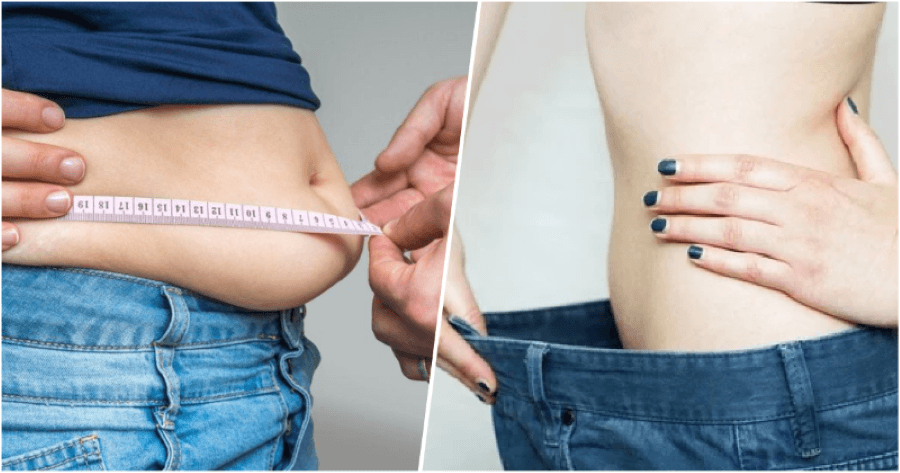Eating disorders have started to gain prominence as a serious threat to health and overall well being in recent times. Although anorexia and bulimia are two commonly seen eating disorders, there are more and equally important types of disorders. Poor self esteem can lead to eating disorders. Many women look up to skinny models and celebrities who paint a picture of perfect body and fall into the trap of getting their body into similar shapes, without realizing that everyone has a different body shape, from pear to hourglass to round shape, and it’s not possible at all to match up your physique to that of your favorite celeb or supermodels by indulging in extreme measures. People with eating disorders are extremely conscious about their body image and have a morbid fear of gaining weight. Once they consume food – regret, guilt, anxiety all kick in resulting in depression. Stress is probably one of the main root causes of any eating disorder. That’s why, in this post, we would go a little more deeper into types of eating disorders and why they are unhealthy for weight loss. Weight gain is generally associated with unhealthy eating habits, such as eating fast food often or food that has low nutritive value. Nowadays, doctors have linked serious eating disorders with weight gain as well, which can cause equal damage to the body, if not more. What are the most common eating disorders that lead to obesity? Read further to find out.


Symptoms of Eating Disorders:
Negative body image and extreme interest or disinterest in food are the primary symptoms of disorder. People with eating disorder often have sleep disruption and interest in weight loss pills and quacks. Preoccupation with exercise, dieting, calories all are initial signs of an eating disorder.
1. Depression.
2. Feeling of worthlessness.
3. Being extremely conscious of eating in a social gathering.
4. Extreme fear of gaining weight.
5. Headache.
6. Extreme hair fall.
7. Falling frequently ill.
8. Low self esteem.
9. Change in menstrual pattern in women.
10. Sleep issues.
11. Feeling lightheaded or dizzy through the day.
12. Lack of energy.
13. Mood swings.
14. Low immunity.
15. Nausea/vomiting.
16. Constipation.
17. Fatigue.
18. Dramatic weight loss.

Causes of Eating Disorders:
Eating disorders usually have a psychological basis. Eating disorders may also stem from genetic problems; people who already have the propensity to be overweight tend to have these disorders, leading to further complications. These days, pressure from family and social media tends to make us more susceptible to these problems. Women tend to have these issues more than men, especially at a very young age. These eating disorders can have serious consequences apart from weight gain. It can lead to electrolyte imbalances, dehydration, and bleeding in the upper GI tract, menstrual irregularities, among others.
Types of Eating Disorders:
There are three broad categories of eating disorders – Binge Eating Disorder, Bulimia Nervosa, and Anorexia.
1. Binge Eating Disorder: We all binge eat sometimes – whether it is an extra slice of cake after dinner or another serving of French fries, it happens more often than not. However, in the context of binge eating disorder, it is more of a chronic problem. In this disorder, one eats more than what is required, often rapidly, and experiences severe guilt over the same once the binging is done. The cycle repeats itself over and over again, and when it happens at least twice every week for more than six months, it is categorized as an eating disorder. It may occur in people who have a normal weight, or those that are already obese. Common triggers include psychological problems like anxiety and depression. Binge eating is not a life-threatening disorder like anorexia, but it can cause lacerations in the stomach, dental caries, and electrolyte imbalance along with the pertinent problem of malnutrition.
2. Bulimia Nervosa: Bulimia nervosa is a more serious disorder that involves binge eating, followed by compensatory behavior that could be of a purging or non-purging type. Purging involves self-induced vomiting or use of laxatives and diuretics. The non-purging type involves excessive exercise or fasting for prolonger duration. The cycle repeats, having an undue effect on the body, sometimes leading to weight gain. Common triggers include body image issues or weight issues. It also may occur in people with normal weight or overweight people. An individual may be diagnosed with this disorder if the cycle of binge eating followed by compensatory purging occurs at least twice a week for three months. People with bulimia suffer from anxiety, guilt, followed by depression after a binge eating session. More often than not, people suffering from bulimia indulge themselves in high-calorie, sweet, and fattening food. The eating session often ends when it is not possible to eat anymore, when they have to sleep, or when they have to vomit to get rid of the food that they have consumed. People with bulimia usually have a negative body image and are completely preoccupied with food, going from periods of strict dietary restraint to extreme binging. Bulimia sufferers also take the help of laxatives and diuretics along with vomiting to get rid of food that they had consumed.
3. Anorexia: People suffering from anorexia have an extreme negative image of their body and go to extremes to control their body shape and weight. Anorexia can be a life-threatening disorder because there is dramatic weight loss with severe calorie restriction, dehydration, constipation, low blood pressure, and lack of sleep. Anorexic pattern over a few months can slow heart rate and blood pressure which means it puts the patient at the risk of developing heart failure in the near future. Osteoporosis or brittle bones is another major symptom that develops over the years. Severe dehydration from anorexia would lead up to kidney failure. Anorexics often fall into impaired judgement and unable to follow a healthy eating pattern or diet due to the constant fear of putting on weight. Timely intervention is required to pull the patient back from being an anorexic to a healthy individual.
Initial Treatment for Eating Disorders:
To treat these disorders, psychological treatments such as cognitive behavior therapy and counselling are recommended. Anti-depressants are also recommended in extreme cases. In order to replenish the vital nutrients lost over time, a dietician should be consulted to make sure a a healthy diet is planned to get regain lost health. Support from family and friends is essential as the recovery process can be slow.
How are Anorexia Nervosa and Bulimia Treated?
There are different ways to treat eating disorders such as anorexia and bulimia. The four major approaches are individual psychotherapy, hospitalization in extreme cases, group and family therapy, and most importantly, behavior modification therapy. A combination of two or more of such therapies are used by experts. A good approach would be to involve a psychologist, a social worker, a counselor, and a dietitian to form a team that bring back the patient’s emotional and diet back on track. In all cases, the patient should be counselled about the benefits of coming out of the disorder and the treatment time can vary from a few months and for up to two years, depending on the patient’s readiness to accept that it is an issue. The treatment would primarily focus on treating negative body image, depression, low self esteem, obsession with a certain body image, anxiety, panic, loneliness along with including physical activity and correcting the dietary pattern. In addition, bringing family and friends to support and encourage the patient are advised. Proper nutrition by chalking out a healthy diet and making sure the optimum calories are reached everyday must be ensured.
How To Prevent Eating Disorders?
1. Never skip your meals unless your into intermittent fasting and know how exactly intermittent fasting works. Severe dieting may lead to eating disorders, especially in adolescent girls who want to match up their body image with that of models and celebrities.
2. Never resort to weight loss pills or crash diets to lose weight.
3. Never get obsessed with weighing scale.
4. Always take pride in your body and strive it to make it fit through proper diet and exercise routine.
5. Seek help when struggling with depression, anxiety, guilt regarding body issues.
Could you have an Eating Disorder?
Eating disorder can show up at anytime to anyone, irrespective of any particular gender or age. Take this quiz to find out if you are suffering from any of the above-mentioned eating disorder. Answer the following questions to rate your own eating attitudes. Do they fall within a normal range? Use these responses:
A = always. U = usually. O = often. S = sometimes. R = rarely. N = never.
1. Are you terrified about being overweight?
2. Do you avoid eating even when you feel extremely hungry for the fear of putting on weight?
3. Do you find yourself preoccupied with food?
4. Have you gone on eating binges with difficulty to stop after a certain point?
5. Do you cut your food into very small pieces?
6. Are you aware of the calorie content of the food that you eat?
7. You particularly avoid foods with high carbohydrate content?
8. You feel that others would prefer that you eat more?
9. Do you tend to vomit after you eat?
10. Do you feel extremely guilty after eating?
11. Are you preoccupied with a desire to be thinner?
12. Do you think about burning up calories when you exercise?
13. Do you realize that other people think that you are too thin?
14. Are you preoccupied with the thought of having fat on your body?
15. Do you take longer than other people to eat your meals?
16. Do you avoid foods with sugar in them?
17. Do you eat “diet only” foods?
18. Do you feel that food controls your life?
19. Do you display self-control around food?
20. Do you feel that others pressurize you to eat?
21. Do you give too much time and thought to food?
22. Do you feel uncomfortable after eating sweets or desserts?
23. Do you engage in crash dieting?
24. Do you like your stomach to be empty?
25. Do you enjoy trying new, rich foods.
25. Do you have the impulse to vomit after the meals?
Score:
Never = 3, Rarely = 2, Sometimes = 1, Always, usually, and often = 0
A total score under 20 points may indicate abnormal eating behavior and the risk of having an eating disorder. If you have scored under 20, please do consult a doctor to get yourself back on track to lead a healthy and happy life in the future.




![Sandwiches_for_weight_loss[1]](https://makeupandbeauty.com/wp-content/uploads/2024/04/Sandwiches_for_weight_loss1.jpg)
